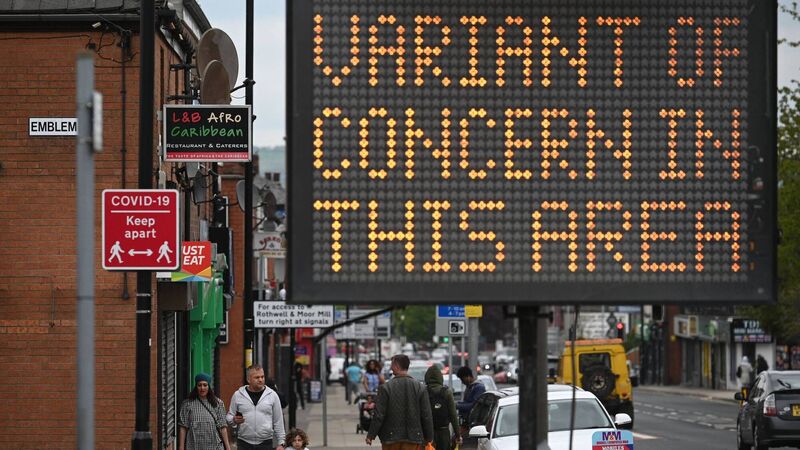Nphet reports 374 new Covid cases while 128 of Indian variant detected by mid-May

A public health digital board warns the public of a Covid-19 variant of concern affecting the community in Bolton, northwest England. Picture: Oli Scarff/AFP via Getty Images
There have been 374 further Covid-19 cases confirmed in Ireland, the National Public Health Emergency Team (Nphet) has said.
As of Sunday morning, 99 coronavirus patients were in hospital, of whom 35 were in ICU.










